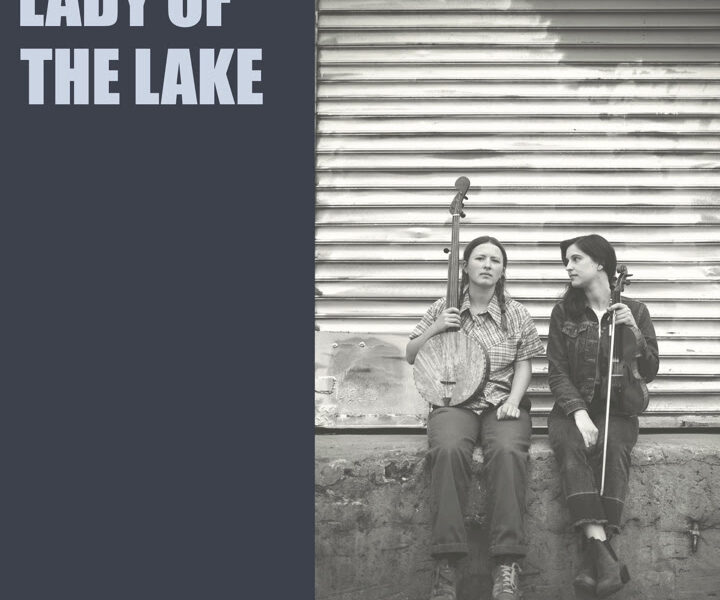Courtesy of Nora Brown
From just outside her Brooklyn apartment, Nora Brown first started to learn about traditional music by complete chance. Her childhood ukulele teacher, Shlomo Pestcoe, was a musical renaissance man, playing a variety of different instruments. His main passion, however, was traditional music, and so Nora began learning old-time music on the ukulele before graduating to the banjo and mandolin.
“It’s true that the majority of the songs I play most closely resemble music culture that linger[s] in the Appalachian region of the US,” Nora wrote to me, “but banjo and fiddle music itself is not exclusive to the South. American traditional music exists everywhere in the country.”
Nora is a rising sophomore at Yale, but she already boasts an impressive number of musical accolades including numerous domestic and international performances as well as an NPR Tiny Desk concert. She has worked with many traditional folk musicians who have helped her hone her banjo playing through the study of various Appalachian regional styles while simultaneously developing her own individual sound.
“I think that the traditions I forward feel accessible to people within and outside of Appalachia because of folk music’s collective nature and roots in sharing,” Nora explained to me when I questioned what it was like learning and performing traditional music from New York City and Connecticut, two places that aren’t typically understood as hot beds for the genre. “These ideas can be appealing to anyone, and [they] certainly defy any borders.”.
In her most recent EP, Lady of the Lake (2023), Nora worked with Stephanie Coleman, a fiddler with decades of folk and bluegrass experience. The four-song EP builds a bridge between past and present, and in it Nora and Coleman boldly express that folk is here to stay. With this new generation of folk musicians, there is plenty to look forward to!
On traditional folk music, Nora says, “It’s old, but old things can be interesting and relevant to our current lives. In fact, most old things are!” As a college-aged woman living in New England, Nora’s music helps to make this genre more accessible to a wider audience. Like many before her, Nora pulls folk out of Appalachia and into the broader country.
“Making the EP was fun,” said Nora, “and [it was] gratifying to record some songs, since we had been playing together as a duo for a while without much stuff out there of the two of us.” She explained to me that she and Coleman work together well as musicians because of their similar musical influences and style. They also function similarly while composing new pieces. Because both of them are limited in their knowledge of music theory, they have to work first from experimentation and feeling.
The EP begins with the album’s namesake, “Lady of the Lake.” The cries of the fiddle ring out alone in the first few measures with long and winding melancholic double stops. Nora soon joins with the banjo underneath Coleman’s fiddle which builds a guiding rhythmic force, pushing the previously mournful shouts of the fiddle into a more positive, winding melody. By the middle of the song, the banjo and the fiddle dance together in an ambitious refrain. Listeners can imagine the two instrumental lines as the ladies themselves, coming together to anticipate the growing connection between past and present, beginning and end, and most obviously, banjo and fiddle.
“Gone So Long” meets listeners where the last song left off with an upbeat and hopeful tempo. Nora’s voice enters in over the instrumental with a shockingly warm and rich tone. At her young age, it’s hard to believe that Nora can hold so much depth in her voice. As she sings, she laments a lost love. Although she is hurt by being left, she holds no anger. She repeats, “You’ve been gone so long/ you’ve done me wrong/ I miss you so.”
The penultimate song in the EP, “Twin Sisters” is another instrumental piece. It feels very connected to “Lady of the Lake” because it has a similar feeling of a dancing duet between banjo and fiddle. “Twin Sisters” is the most like a bridge of any of the other pieces. Although it is the shortest piece on the EP, it quickly develops and builds the layers between the two instruments, turning the separate melodies into one voice.
The EP concludes with its longest song “Copper Kettle.” It stands out as the strongest song on the EP, tying together the instrumental development of the previous songs with Nora’s emotionally baring voice.
“You can’t really learn these songs without hanging out with someone else which in my eyes protects it from falling into antiquity,” Nora expressed to me. “The songs feel wrapped in one’s own experiences of human connection, to belong to everyone uniquely. As my friend and the owner of Jalopy Records, Eli Smith, says, ‘Folk music is our collective inheritance.’”
Nora is planning on playing some local shows in Connecticut this Fall, and she is also hoping to release new music soon. She can be kept up with on instagram @little.nb, and her music can be listened to anywhere you stream music!










